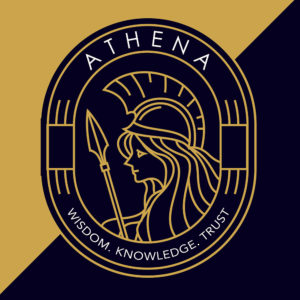In academic publishing and peer-reviewed journal landscapes, many challenges confront the functionality of smooth processes and overall success. From processing submissions in a timely manner, encouraging diversity on editorial boards to resolving authorship conflicts, adhering to embargos, and understanding the positive/negative implications of artificial intelligence—publishers must find resources to help them stay adaptive, innovative, and survive by implementing tailored approaches to their specific needs. In Ask Athena, we tackle tough subjects, bring in industry experts, and provide resources to publishers, societies, and editors for them to succeed, whether they are about internal office issues or external journal-wide challenges. Submit your questions to scienceeditor@councilscienceeditors.org.
This month’s Ask Athena column delves into artificial intelligence (AI) in editing and publishing and will be followed by a webinar (“Artificial Intelligence in Editing & Publishing”) on January 25, 2024, at 11:00 AM EST, hosted by Dr Sunil Moreker, a National Award winner for Wolfram Language AI in Papilledema and a repeat presenter on plagiarism detection software at the Committee on Publication Ethics.
Dear Athena,
With all the pressures facing science publishing, I’m interested in tools that can help, such as AI, but how can we preserve the “human judgment and integrity model” vs. “how to streamline peer review, plagiarism detection, and content landscape architecture”?
—Wary of AI
Dear Wary,
It sure seems like AI is reshaping the publishing industry, offering efficient and cost-effective solutions for various tasks related to the publication process, whether we desire it or not. Moreover, AI has the potential to revolutionize academic publishing in various ways.
The potential of AI can be overwhelming, so here are some tips on ways AI can be harnessed effectively, tools that align with specific needs, and resources for training staff:
Harnessing AI Effectively in Academic Publishing
Automating Editorial Processes
- Peer review management: AI algorithms can match submitted manuscripts with appropriate reviewers, speeding up the review process.
- Plagiarism detection: AI tools can efficiently scan documents for plagiarism, ensuring the originality of submissions.
- Language editing: AI-driven language tools can assist non-native English speakers in improving the language quality of their manuscripts.
Content Curation and Recommendation
- Content tagging: AI can analyze and tag articles based on their content, aiding in better categorization and search optimization.
- Personalized recommendations: AI algorithms can suggest relevant articles to readers based on their interests and previous reading patterns.
Data Analysis and Visualization
- Data extraction: AI can extract valuable data from research papers, speeding up the process of data analysis.
- Automated graphs and visuals: AI tools can create charts and visuals based on the data presented in research papers, enhancing the reader’s understanding.
Tools Aligned with Specific Needs
Natural Language Processing (NLP) Tools
- IBM Watson Natural Language Understanding: Analyzes text for sentiment, entities, concepts, emotion, relations, and more.
- Google Cloud Natural Language API: Provides syntax analysis, entity recognition, sentiment analysis, and content classification.
Machine Learning Platforms
- TensorFlow: An open-source machine learning framework developed by Google for various machine learning tasks.
- PyTorch: An open-source machine learning library developed by Facebook’s AI Research Lab, known for its flexibility and dynamic computation graph.
Data Analysis Tools
- R and RStudio: Widely used for statistical analysis and creating visualizations.
- Python Libraries (Pandas, NumPy, Matplotlib): Popular tools for data manipulation, analysis, and visualization.
Research Assistance Tools
- Research Rabbit: Reimagines research with its Discovery app, connecting researchers to global opportunities.
- Elicit: Automate time-consuming research tasks like summarizing papers, extracting data, and synthesizing your findings.
Resources for Training Staff and Ensuring Transparency
Training Resources
- Online courses: Platforms like Coursera, edX, and Udacity offer courses on AI, machine learning, and natural language processing.
- Workshops and webinars: Organize workshops and webinars conducted by AI experts to train staff members.
- In-house training: Collaborate with AI professionals to conduct on-site training tailored to your organization’s needs.
Ensuring Transparency
- Explainable AI (XAI) techniques: Utilize AI models and algorithms that are transparent and provide clear explanations for their decisions.
- Regular audits: Conduct regular audits of AI systems to ensure they align with ethical guidelines and standards.
- Transparency reports: Publish transparency reports detailing the use of AI in the publishing process, ensuring openness about the methods employed.
Effectively harnessing AI, selecting the right tools, and investing in staff training empower academic publishers to accelerate processes, enhance accuracy, and ensure transparency—ultimately benefiting the entire industry. Additionally, many publishers and journals have policies regarding AI and authorship. We recommend considering these policies when creating new guidelines or deciding how to appropriately integrate AI into your processes.
Always,
Athena
Sign up for the CSE webinar1 on January 25, 2024, at 11 am EST on “Artificial Intelligence in Editing & Publishing,” hosted by Dr Sunil Moreker,2 National Award winner for Wolfram Language AI in Papilledema and a repeat presenter on plagiarism detection software at the Committee on Publication Ethics.3
References and Links
- https://cse.memberclicks.net/webinarJan2024
- https://scholar.google.com/citations?user=GMCSvyAAAAAJ&hl=en
- https://publicationethics.org/
Answers to this Ask Athena question were provided by Ryan James Jessup (SWB Consultants) and Amy Shapiro (Frontiers) in collaboration with the CSE Education Committee.

